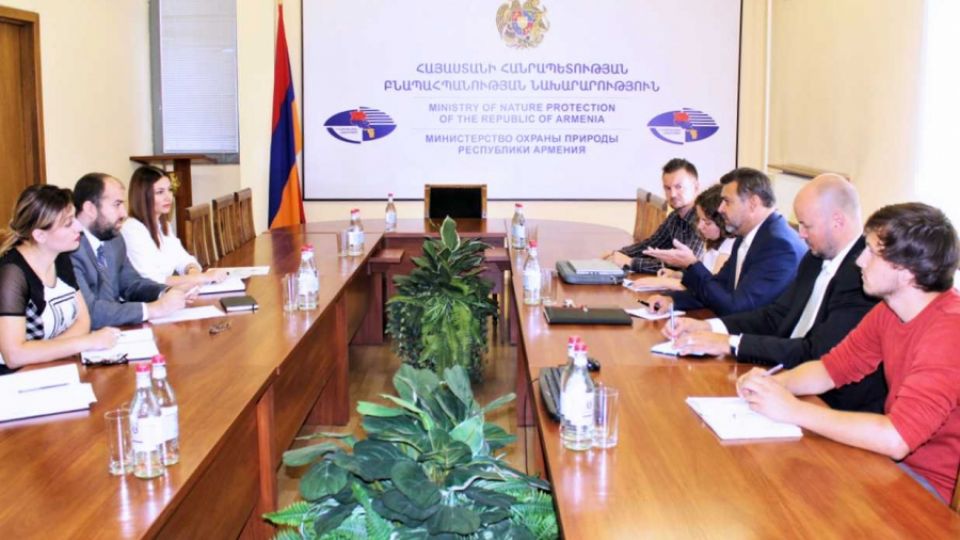The Armenian government was used to analyze the pollution in the Northern region to improve the situation which was the main subject of an interview between Erik Grigoryan, Minister of Nature Protection, and Czech experts. In particular, they discussed his office plans to optimize the monitoring system of emitted substances. The meeting on the impact of the mining of non-ferrous metals on local communities was realized thanks to Czech Ambassador in Yerevan, Petr Mikyska.
Armenia is mainly concerned with air pollution. Its northern province of Lori is the worst in numbers. According to Minister Grigoryan, one of the main reasons for the poor air quality is insufficient environmental fees which currently do not provide financial incentive to the companies to reduce emissions.
"The problem was also the lack of a proper monitoring system," adds Nikol Krejcova, coordinator of the Armenian project. Since this year, all mining companies are required to publish emission data every three months. In the Alaverdi Copper Smelting Plant, continuous monitoring was installed. This data is publicly available on the website of the Ministry of Nature Protection in order to contribute to public participation in decision-making.
However, to an extent, these figures are not reliable presently. The Armenian government has recently asked its German counterpart for a mobile monitoring system to check the reported data. Also, the Ministry hopes for financial support from the European Union.
According to the World Health Organization (WHO) report, Armenia, together with Bosnia and Herzegovina, is ranked fifth on the scale of pollution mortality rates per number of inhabitants. The government's eminent interest is, therefore, an analysis of the impact of pollution on human health. Minister Grigoryan said this at a meeting while eagerly anticipating the analysis results. The soil and sediment samples are now being examined in the laboratory of the University of Chemical Technology in Prague. The findings will be known in October.
The mediator of the meeting was Ambassador Extraordinary and Plenipotentiary of Czech Republic in Armenia, Petr Mikyska, and he worked together with his deputy, Jan Plešinger. The "Civil Society in the Decision-Making of Raw Materials in Armenia" project is supported by the Transition Promotion Program of the Czech Ministry of Foreign Affairs. According to Erik Grigoryan, drought projects are welcomed, and he also appreciated the involvement of local organizations, Armenian Women for Health and Healthy Environment, NGO and the informational portal, Ecolur, which "contribute to increasing the effectiveness of the sectorial policy," the Ministry stated in an online press release.







